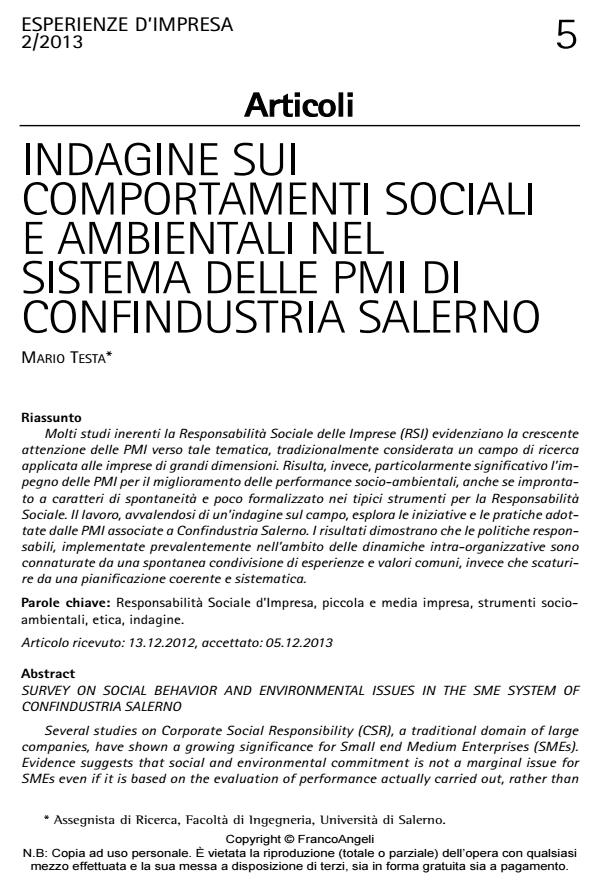Survey on social behavior and environmental issues in the sme system of Confindustria salerno
Journal title ESPERIENZE D'IMPRESA
Author/s Mario Testa
Publishing Year 2014 Issue 2013/2
Language Italian Pages 18 P. 5-22 File size 597 KB
DOI 10.3280/EI2013-002001
DOI is like a bar code for intellectual property: to have more infomation
click here
Below, you can see the article first page
If you want to buy this article in PDF format, you can do it, following the instructions to buy download credits

FrancoAngeli is member of Publishers International Linking Association, Inc (PILA), a not-for-profit association which run the CrossRef service enabling links to and from online scholarly content.
Several studies on Corporate Social Responsibility (CSR), a traditional domain of large companies, have shown a growing significance for Small end Medium Enterprises (SMEs). Evidence suggests that social and environmental commitment is not a marginal issue for SMEs even if it is based on the evaluation of performance actually carried out, rather than on the formal adoption of specific tools. This paper explores CSR initiatives and practices of SMEs associated with Confindustria Salerno, underpinning that socially responsible policies implemented, mainly in the dynamics intra-organizational, are bound to a natural sharing of experiences and common values, rather than originated by a coherent and systematic planning.
Keywords: Corporate Social Responsibility, small and medium enterprises, social and environmental tools, ethics, survey
Mario Testa, Indagine sui comportamenti sociali e ambientali nel sistema delle PMI di Confindustria Salerno in "ESPERIENZE D'IMPRESA" 2/2013, pp 5-22, DOI: 10.3280/EI2013-002001